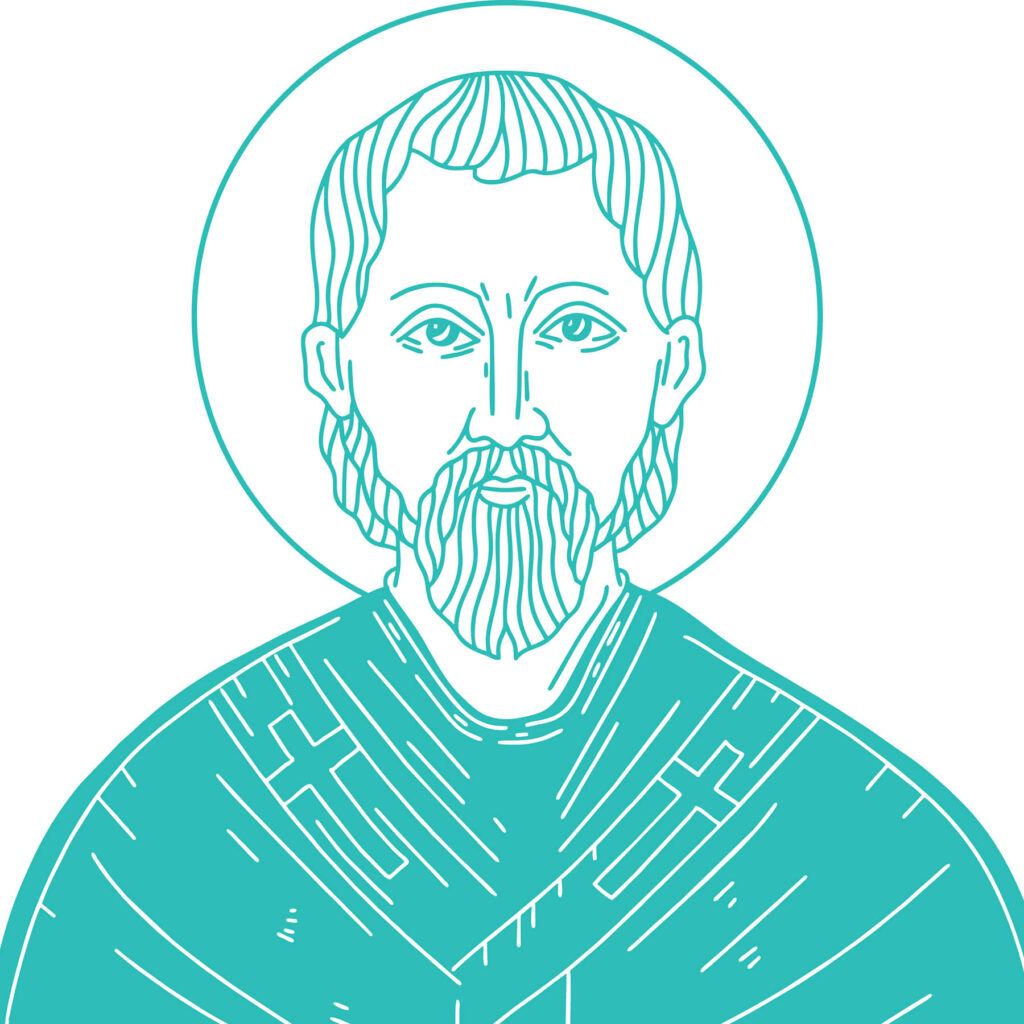 John Chrysostom (347-407)
John Chrysostom (347-407)
was an influential pastor and theologian in the Eastern church who was noted for his asceticism and his extraordinary preaching abilities. In fact, the moniker “Chrysostom” means “golden-tongued” in Greek and was bestowed on him over a hundred years after his death by Pope Vigilius. After serving as the popular bishop of Antioch, Chrysostom was made the bishop of Constantinople, which was, and is, the most important ecclesiastical office in the Eastern church.
In fourth-century Constantinople, now Istanbul, Turkey, Chrysostom’s defense of the poor came at a cost. Because of his strong denunciations of vice, luxury, and laxity, Chrysostom made many enemies in the court and capital. He was eventually exiled from Constantinople.
The Eucharist, according to fourth-century theologian John Chrysostom, regularly gives believers a vision for a society — and economy — changed by the gospel. Chrysostom believed the Eucharist was central to our theology of economics.
In his homily on 1 Corinthians 11:17–27, Chrysostom focuses on the economic and sociological divisions in the Corinthian church. For the Corinthian church, eating together across socio-economic divides flowed out of their common worship; however, Chrysostom says, because of the divisions in the church, this “most excellent and most useful” communal meal became corrupted.
At the Lord’s Supper, Chrysostom taught, we observe and enact a theology of economics. Four things he calls us to remember:
1. The master of the meal is Jesus, and the meal belongs to him, not to the noble, not to the wealthy, not to the poor.
For what was intended to be set before all in common, that these men fed on alone, and proceeded both to surfeiting and to drunkenness. Wherefore neither did he say, ‘one is hungry, and another is filled’ but, ‘is drunken.’ … It is a fault to be drunken even without despising the poor; and to despise the poor without being drunken, is an accusation. When both then are joined together at the same time, consider how exceeding great is the transgression
2. All are equal at the Lord’s Table.
‘Your Master,’ says he, ‘counted all worthy of the same Table, though it be very awful and far exceeding the dignity of all: but you consider them [the poor] to be unworthy even of your own [concern/help], small and mean as we see it is; and while they have no advantage over you in spiritual things, you rob them in the temporal things. For neither are these your own.’
3. All are called to behave in a manner worthy of the Lord’s Table.
If therefore you come for a sacrifice of thanksgiving, do on your part nothing unworthy of that sacrifice: by no means either dishonor your brother, or neglect him in his hunger; be not drunken, insult not the Church. As you come giving thanks for what you have enjoyed: so do yourself accordingly make return, and not cut yourself off from your neighbor.
4. Our hunger for the Eucharist should motivate us to feed the hungry. Our poverty before Christ should drive us to care for the poor.
Do you wish to honor the body of Christ? Do you ignore him when he is naked? Do not pay homage in the temple clad in silk, only then to neglect him outside where he suffers cold and nakedness. He who said, ‘This is my body,’ is the same One who said: ‘You saw me hungry and gave me no food,’ and ‘Whatever you did to the least of my brothers you did also to me.’ … What good is it if the eucharistic table is overloaded with golden chalices, when he is dying of hunger? Start by satisfying his hunger, and then, with what is left, you may adorn the altar as well.